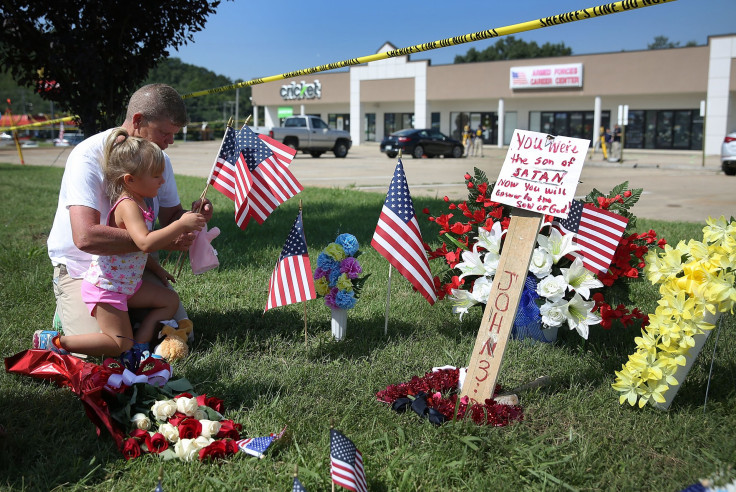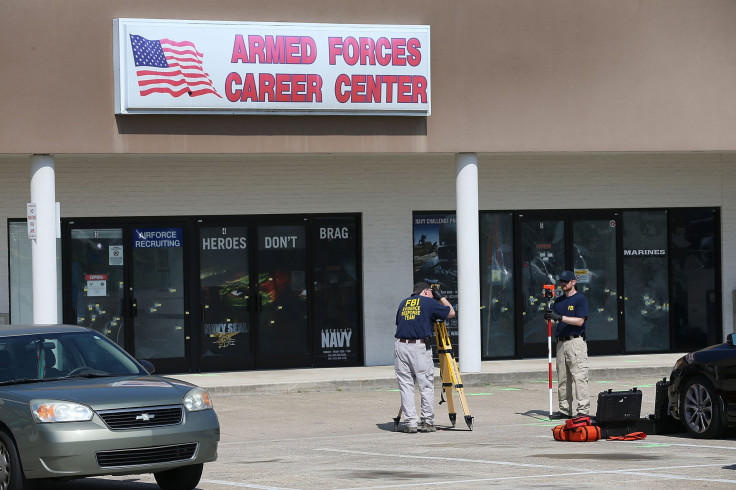Tennessee Shooting Sparks Fear Of Backlash For Muslims, National Group Issues Warning For Eid Prayers

Eid al-Fitr is supposed to be the joyous culmination of a month of fasting for the holy month of Ramadan. But for Muslims in the United States, the holiday began Friday with a warning from a national civil rights organization that urged mosques around the country to bolster security after a deadly shooting in Tennessee in which the accused gunman was Muslim.
“CAIR is urging mosques and Muslim community leaders nationwide to step up security for Friday’s end-of Ramadan Eid ul-Fitr … holiday prayers by requesting a local law enforcement presence in the vicinity of any public prayers or holiday gatherings,” the Council on American-Islamic Relations, a national civil rights group based in Washington, D.C., said Friday. CAIR, which condemned Thursday’s attack, also asked community leaders to follow safety measures already outlined in a guide containing best practices for mosque safety.
The warning came one day after Mohammod Youssuf Abdulazeez, 24, killed four Marines and wounded three others when he opened fire Thursday at a recruiting center for the armed services and then at a naval reserve facility. The FBI has opened an investigation into what it said was being treated as “an act of domestic terrorism.”
The Council on American-Islamic Relations issued its warning as a direct result of the attacks, Ibrahim Hooper, the director of communications for the council, said. “We haven’t had specific threats,” he said in a telephone interview Friday. Hooper said mosques and community leaders should remain vigilant, but emphasized that the council’s condemnation of the attacks superseded its security warnings. “Any concern about backlash is secondary,” he said.
The fact that Abdulazeez, the suspected gunman who was killed by police, was Muslim will likely reverberate throughout American-Muslim communities, Suhaib Webb, an imam in Washington, D.C., and the founder of the Ella Collins Institute of Islamic and Cultural Studies, said. “That puts a tremendous amount of pressure on the community,” he told the Huffington Post Thursday.
Muslims organizations and centers in Tennessee and beyond quickly condemned Thursday's attacks, calling for solidarity. The Islamic Society of Greater Chattanooga, where Abdulazeez had prayed in recent months, canceled Eid celebrations and prayers, saying it condemned the shootings “in the strongest possible terms.”
“The attacks are cowardly and despicable,” the Muslim Public Affairs Council, an advocacy group based in Los Angeles, said in a statement Thursday, warning that extremists would try to use the attacks to divide America or hold them up as evidence of a war between Islam and the West. “We reject both extremes,” it added.
Should have been a day of Eid celebrations. Instead Chattanooga's Muslims feel the need to take responsibility... pic.twitter.com/MCM04qOqgM
— Rob Crilly (@robcrilly) July 17, 2015When asked if his mosque had faced any backlash so far, a man who answered the phone for the Islamic Center, which is in Chattanooga but is separate from the Islamic Society of Greater Chattanooga, said it had not. The man, who identified himself only as the imam, declined to answer further questions.

At mosques around the country, Eid prayers, which are typically held in the morning, appeared to have passed without incident. But concerns about hatred, and hateful acts, directed toward Muslims, especially in Tennessee, have roots that date back years.
In 2010, when it was announced that a mosque would be built in Murfreesboro, a city about 35 miles southeast of Nashville, graffiti appeared on the sign that shared the news. “Not welcome,” it read. The county also was sued by angry residents who claimed the mosque would harbor terrorists, the Tennessean reported at the time, and Pat Robertson, a vocal televangelist, claimed that Muslims were taking over the city.
That year, 32 percent of respondents polled by Middle Tennessee State University favored the idea of requiring Muslims to register their locations with the federal government, the Tennessean reported.
The mosque in Murfreesboro eventually opened in 2012. About 1 percent of Tennessee’s population is Muslim, according to the Pew Research Center.
4-yr #Murfreesboro mosque conflict ends with #SCOTUS declining to hear case http://t.co/7WUASO46vh pic.twitter.com/NUIvEgf7zO
-- Religion NewsService (@RNS) June 3, 2014“In recent years, Tennessee has seen some of the nation’s most vitriolic expressions of anti-Muslim hate,” Paul Galloway, then the executive director for the American Center for Outreach, co-wrote with Mohamed-Shukri Hassan, director of the American Muslim Advisor Council, in an open letter to U.S. President Barack Obama in December, when the president visited Nashville to deliver remarks on immigration reform. “Today we continue to see hatred expressed on a regular basis,” they added.
But in Chattanooga, locals have been more welcoming toward Muslims, the Times Free Press reported in 2012, when the Islamic Center was completed. In February, when the center hosted a “Meet Your Muslim Neighbor” event, dozens of people, including local clergy, attended.
© Copyright IBTimes 2024. All rights reserved.






















